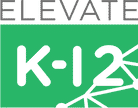Few educators could have predicted the widespread adoption of remote learning. Then came the COVID-19 pandemic, which forced teachers to adapt quickly to a virtual learning environment.
By the end of 2020, K-12 schools worldwide received 51 million tablets and laptops.
With the soaring popularity of remote and hybrid learning, virtual professional development is vital. It helps teachers understand the new tools of the trade, such as video conferencing, learning management systems, and online collaboration tools.
In addition, it helps virtual teachers master new pedagogical approaches and strategies for engaging students remotely.
Fortunately, educators have many options for expanding their skills in the online learning environment. These are a few of our favorite professional growth opportunities for virtual teachers.
1. Webinars and Online Workshops
Webinars and virtual workshops offer a convenient, accessible way for educators to grow their skills and stay current with the latest teaching methods.
Many educational organizations, professional associations, and ed-tech companies host live and recorded webinars and online workshops. Topics range from creating interactive activities to blended learning practices.
The beauty of webinars and online workshops is their flexibility. Teachers can participate in live sessions or access recorded content at their convenience. We’ve included a few examples below to get you started.
- Quality Matters: Quality Matters offers online workshops designed specifically for K-12 teachers new to online teaching. Previous workshops have covered course design, best practices for online learning, and using technology effectively in the virtual classroom to drive student success.
The workshops are reasonably priced, and with a Quality Matters membership, you receive a special discount on professional development.
- SimpleK12: Teachers can access various free and paid professional development opportunities through SimpleK12. SimpleK12 hosts webinars, workshops, and online professional development courses for K-12 teachers. Topics include curriculum development, classroom management, and instructional technology, among many others.
- SchoolsFirst FCU Center for Creativity and Critical Thinking: Through Cal State Fullerton’s SchoolsFirst FCU Center for Creativity and Critical Thinking, teachers can participate in free webinars on K-12 online teaching.
The webinars explore new strategies and techniques for teaching online. During each session, teachers will have dedicated planning time to develop curriculum or action plans for their classrooms.
2. Virtual Coaching and Mentoring
Virtual coaching and mentoring are great ways to supplement the knowledge gained from webinars and workshops. They allow virtual teachers to refine their craft in engaging one-on-one or small group sessions with experienced mentors or instructional coaches.
Through coaching and mentoring, teachers receive personalized support and feedback tailored to their needs. They can then implement that feedback directly in their online instruction to boost their effectiveness.
If you’re looking for the right coach or mentor, we’ve included a few options below.
- School or District Programs: Many schools and districts provide virtual coaching and mentoring programs for teachers. Check with your school administration to see if your school or district offers these types of opportunities. If you’re an administration, consider implementing a mentorship program in your school district to connect new educators with seasoned pros.
- External Organizations: Organizations like Sibme Virtual Coaches, Modern Classrooms Project, and EdConnective Teach specialize in mentoring and coaching virtual teachers. Teachers can connect with other experienced educators and mentors for ongoing support and feedback.
3. Online Courses and Professional Learning Communities
If you prefer to explore a specific topic in depth, online courses can be a great option. Many virtual K-12 teachers take self-paced online courses and participate in professional learning communities (PLCs).
Online PLCs connect educators across schools and school districts, helping them continuously enhance their skills. Participants can share best practices, troubleshoot challenges, and learn from each other’s experiences. PLCs are also terrific for networking with other educators who share your interests and goals.
To find online courses in specific areas of teaching and learning, explore platforms like Coursera, edX, and Teachable. These platforms offer a range of courses, from fostering social-emotional learning in a virtual environment to nurturing student achievement. Most courses give learners the option to go at their own pace.
- edWeb: edWeb is a free professional learning community that connects educators interested in a wide range of topics. Teachers can join a PLC focused on virtual teaching or a community related to their teaching areas, such as PreK-3 Digital Learning or Inspire a Love of Reading.
- Association for Supervision and Curriculum Development (ASCD): ASCD connects educators virtually based on their shared interests. Within this digital community, virtual teachers can meet and collaborate with like-minded educators on a variety of K-12 education topics.
4. Virtual Conferences and Networking Events
Even if virtual teachers can’t attend an event in person, there are many conferences and events they can join remotely.
These virtual conferences, networking events, and symposiums give educators a dynamic space to network with their fellow educators. Attendees can share inspiring ideas and stay up-to-date on the latest advancements in virtual education.
You can find information on virtual conferences and networking events through professional organizations, universities, and education companies. Virtual conference platforms like Zoom and Microsoft Teams also have event calendars where you can search for conferences using keywords like “K-12” or “remote learning.”
Once you find an event to attend, you can register for the sessions that reflect your professional interests. This way, you won’t have to sit through sessions that aren’t relevant to your subject area or the grade you teach.
Here are some resources to explore:
- National Educational Technology Conference (NETC): Hosted by the International Society for Technology in Education (ISTE), this annual virtual conference includes workshops, sessions, and networking opportunities for educators of all grade levels. Sessions cover topics like artificial intelligence and project-based learning for self-directed learners.
- Aurora Institute Virtual Events: The Aurora Institute (formerly known as the International Association for K-12 Online Learning or iNACOL) regularly hosts online conferences, webinars, and symposiums on all aspects of K-12 education. Administrators, educators, lawmakers, and researchers come together to present and discuss some of the most challenging topics in education.
5. Self-Directed Online Learning and Resources
For virtual teachers who prefer to learn at their own pace, resources like blogs, podcasts, videos, books, and research articles offer invaluable learning opportunities. Teachers can explore topics of interest at a pace that fits their needs and schedule.
Following trusted online resources like education blogs and podcasts is a good way to stay informed. Many teachers set aside time in their day or week for professional development. During this time, they can expand their knowledge and explore topics that are relevant to their teaching practice and professional goals.
Check out these resources for self-directed learning:
- Edutopia: Edutopia is a comprehensive resource for educators. It provides information, inspiration, and practical strategies for learning and teaching preK-12 education.
- Podcasts: Podcast listeners have many great education-related options. The Cult of Pedagogy Podcast, House of #EdTech, the 10 Minute Teacher Podcast, and Teach Me, Teacher are some popular education podcasts for teachers.
Best Practices for Virtual Professional Development for Teachers
Virtual learning is constantly evolving. One-size-fits-all continuing education workshops and pedagogical approaches no longer enable teachers to succeed in the virtual classroom.
Here are a few best practices to help you make the most of professional development opportunities.
Understand the Goals First
Many teachers have their own unique learning goals and objectives for their virtual professional development. Maybe they want to become more comfortable with digital learning tools or facilitate more engaging discussions with students.
So it’s important to clearly identify your goals so you can map out your professional development plan effectively. From there, you can decide what types of opportunities will put you on the right path.
Actively Participate
Just like they emphasize in their own classrooms, virtual teachers must actively participate in their professional development sessions. This means asking questions, sharing insights, and collaborating with their peers.
Active participation leads to better learning outcomes and creates meaningful dialogue between educators. Some teachers even create “pods” with other educators to experiment with new strategies in their classrooms. They report back to share what worked and what didn’t work so they can learn from each other’s experiences.
Implement New Ideas and Learnings
Of course, professional development doesn’t do much good if you don’t use the teaching strategies and techniques you’ve learned in your teaching practices and lesson plans.
For example, if you’ve been learning about integrating hands-on learning activities into the virtual classroom, you could experiment with a new classroom polling technology to engage students.
Reflect on Professional Growth
As you expand your knowledge and put new skills into practice, don’t forget to take some time for self-reflection. Think about how far you’ve come, identify areas for continued improvement, and celebrate your successes. These insights will guide your ongoing professional development journey.
Empower Virtual Teachers Through Unique Professional Development Opportunities
Mastering the virtual classroom and creating positive learning experiences for students requires a unique skill set. Professional development is the key that unlocks a virtual teacher’s potential so they can create thriving learning communities.
When teachers have the right professional development tools, every learner can have access to the high-quality teaching they deserve. That’s why Elevate K-12 is committed to supporting not just our educators but all teachers in their professional growth and development journeys.

